Knockdown rebuild projects are becoming a popular choice for home builders and it’s easy to see why. With vacant land in desirable areas becoming harder to come by, a knockdown rebuild seems like the perfect solution. It’s also perfect for those who love their current location but want to upgrade from their existing house. But let’s get to the reason you’re here. How much does a knockdown rebuild cost?

The oversimplified answer is that on average, a knockdown rebuild will cost between $350,000-$700,000. Each project is unique, so without knowing the specifics of your situation, it’s difficult to give a more precise number. There are several factors that will influence the costs involved, so in today’s article, we’re taking a detailed look at what you’ll be paying for during the knockdown rebuild process. This will help you identify where you can save some money and, just as importantly, help you avoid mistakes that could potentially blow your budget.
Why go it alone?
Building a house is one of the biggest projects most people ever undertake. There are a lot of steps involved, and it’s natural to find the whole thing a little overwhelming. Buildi is here to help you through the entire process. We can help you find the best builder for the project, as well as make sure everything is staying on track throughout the entire process. We’ll also ensure there’s nothing fishy in your building contract and ensure everything you’ve paid for is delivered. Get in touch with us today to organise your free consultation.
Factors impacting the cost of your knock-down rebuild project

Demolition costs of the existing property
Though builders advertise themselves as knockdown rebuild specialists, it’s unlikely they will organise a demolition for you. They’ll recommend a demolition company, but it’ll be up to you to contact them and organise everything. On average, demolition costs should be somewhere between $12,000 to $40,000. There are a few variables that will affect the price including:
- The accessibility of your property
- Size of the building you’re knocking down
- The number of hazardous materials in the house (asbestos, for example, can add another $30,000 to your bill)
If your house is easily accessible, has no hazardous materials, and is an average size, your costs are likely to fall between $12,000-$20,000. A lot of demolition costs are estimated on charging per square metre. For a more accurate estimate, you’ll need to have someone look at your property and provide a quote.
Site costs for the new build
Site costs have the potential to be the biggest hidden expense if you’re not prepared for it. You’ll need to perform both a soil and contour test which can cost over $1,400. The overall costs involved are on average $18,000. Site preparation is an important part of the building process, and these tests shouldn’t be skipped, even if you had a soil test conducted when you built your original home. Land changes over time and major projects (like a knockdown rebuild) can have a major impact on your foundation.
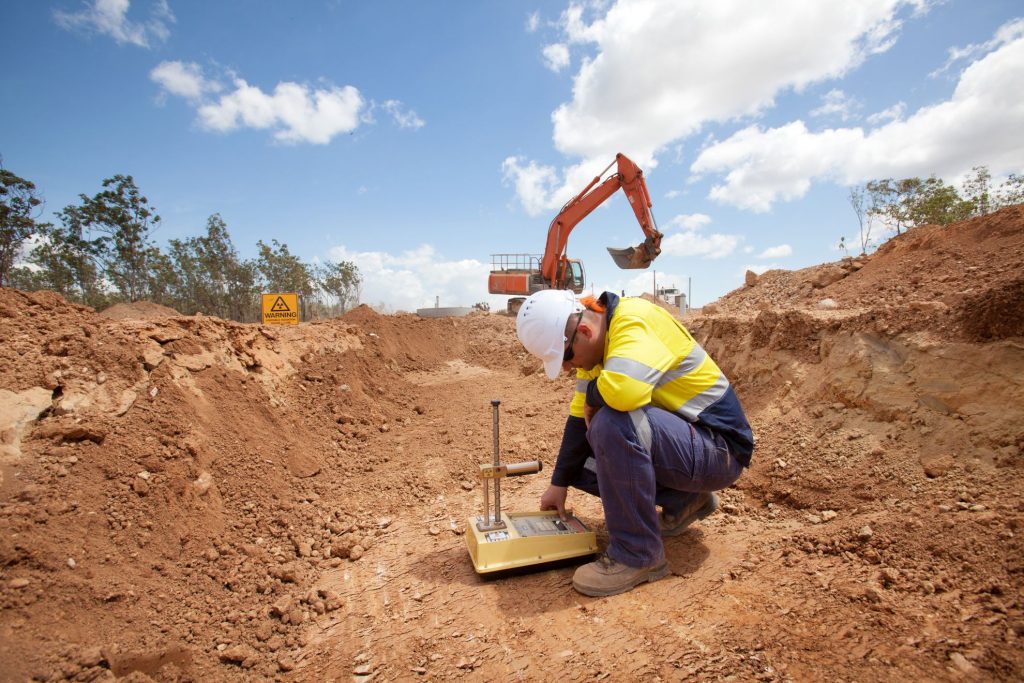
Location of the new build
Difficult site conditions like a sloping block or difficult-to-reach terrain can add to knock down rebuild costs. This is due to these types of sites offering more of a challenge than flat blocks. Be sure to use a builder who is not only a knockdown rebuild specialist but also experienced with unusual blocks. If you’re in a remote area, expect your contractor’s travel expenses to show up on your bill as well.
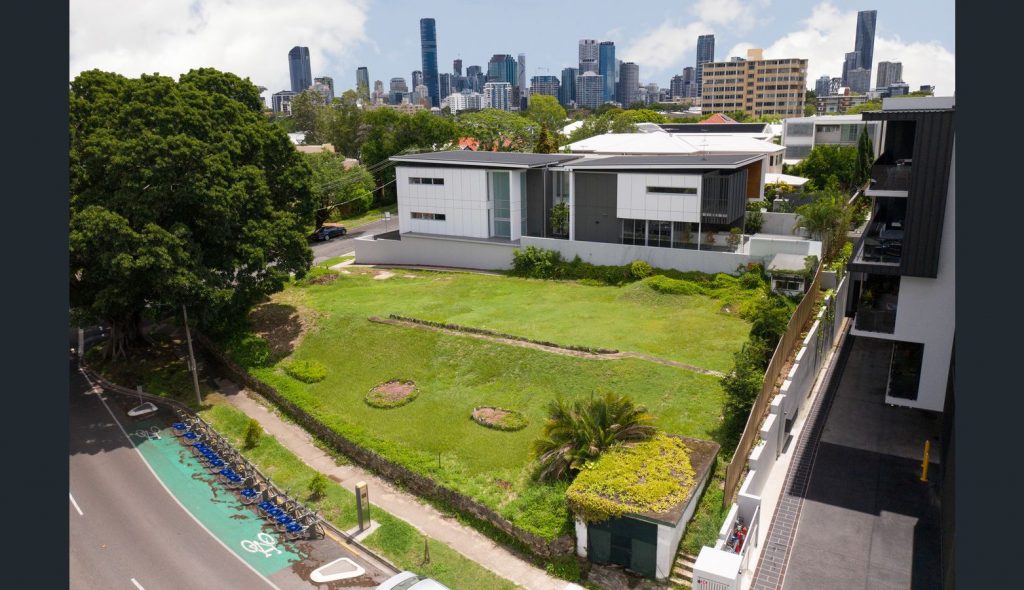
Building materials costs
Your choice of building materials is going to play an important role in determining how much the rebuild of your house is going to cost. Some ways you can cut down on these costs include recycling materials, choosing the cheaper options offered by your builder, and using standard materials rather than ordering something more unique.
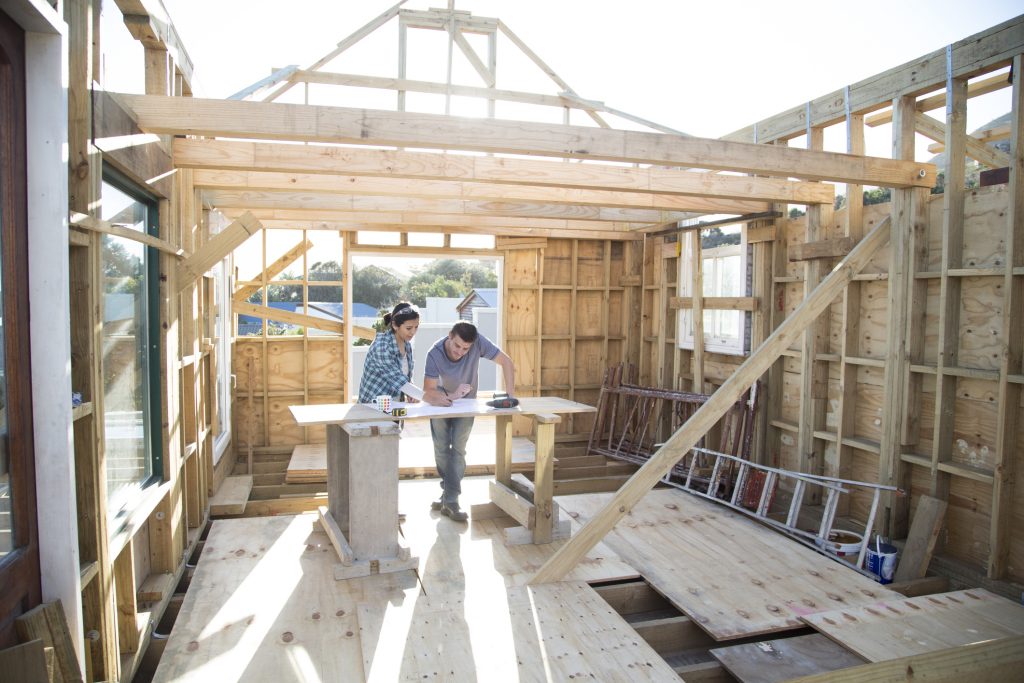
Tree removal costs (if required)
When it comes to knockdown rebuilds, tree removal is often a necessity. Tree removal is one of those things that can vary depending on a variety of factors.
Some elements which will influence the cost include:
- The size, species and condition of the tree and tree roots
- Where your location is, along with the terrain and how safe the job is.
- Bad weather can increase prices.
- Extra expenses will come from stump removal, green waste disposal and permit costs.
Without the specifics, it’s difficult to give an exact figure on how much your tree removal will cost, however below is a rough guide as to what you can expect.
Small Trees (under 10 metres): $300-3000
Medium Trees (10-20 metres): $500-$4,000
Large Trees (over 20 metres): $12,000-$20,000
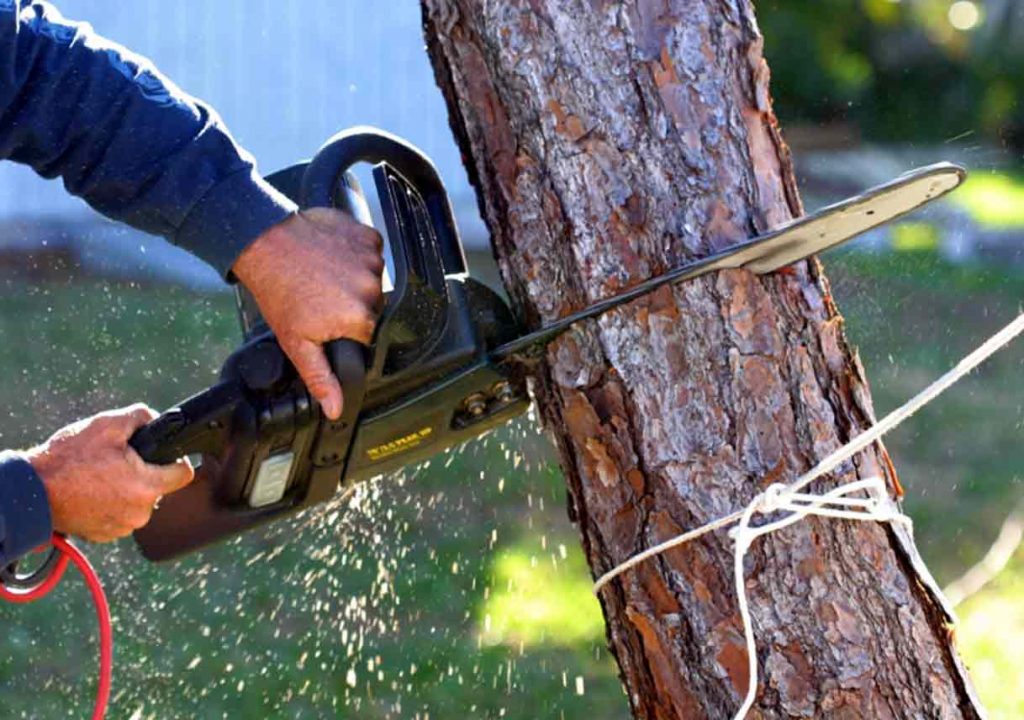
Asbestos removal (if required)
If your house was built between 1920-1990, there is about a 50% chance your house design will contain asbestos. Asbestos is a hazardous substance that requires a specialist to remove it safely. Don’t ever try to remove asbestos yourself, as even builders hire someone else to do this. Unfortunately for the homeowner, this is an expensive process and can add up to $10,000 to your costs. As an estimate, removing asbestos cladding from your walls may cost between $4,000 and $5,000 and removing asbestos from the roof can range between $3,500 and $5,000. While it’s a shame to have to fork out this money, it really is in the best interest of your family’s health to remove any asbestos from your property.
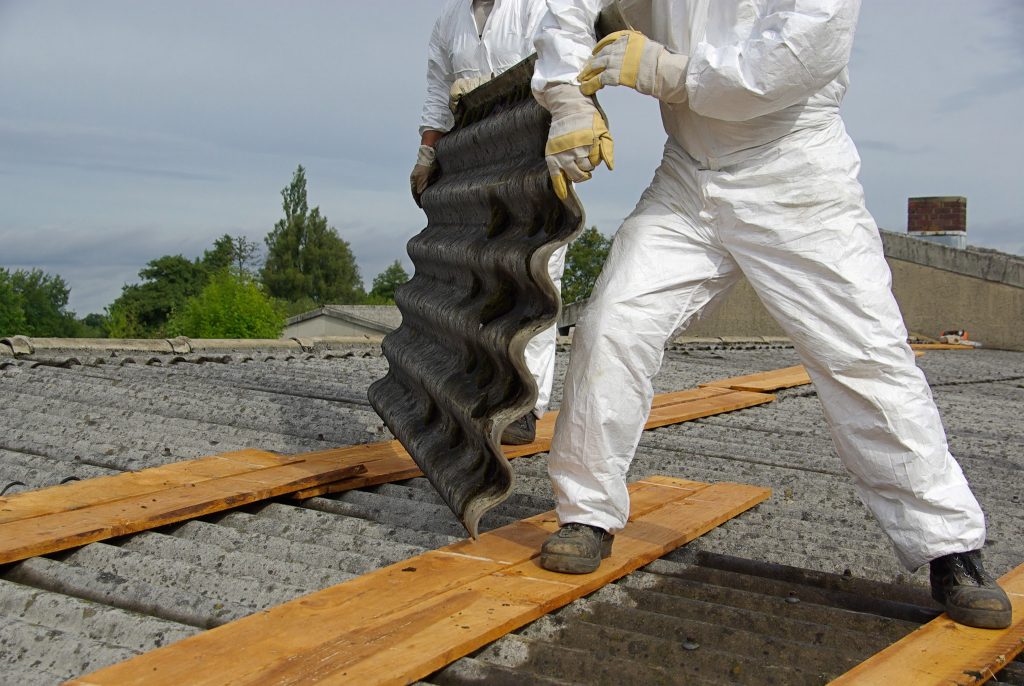
Disconnecting services costs
Before you knock down your home, you need to disconnect all your services including electricity, internet, gas, telecommunications, sewers, and water among others. For most services, you’ll need to allow 4-6 weeks for disconnection to happen.
While it is your demolisher’s responsibility to check whether you’ve disconnected all services before proceeding with the demolition, it’s up to you to actually perform these tasks.
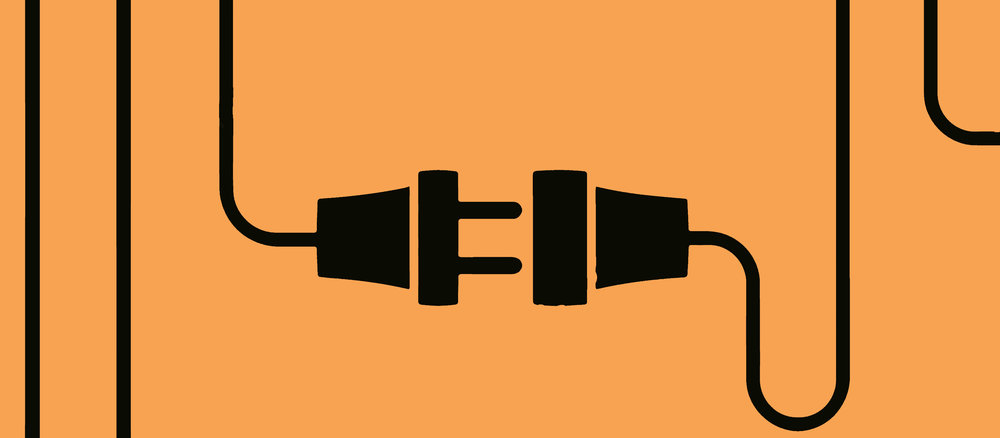
Additional council fees
A common expense homeowners overlook is the council fees that come with any building endeavour. This will include approvals, development application fees, and construction certificates. It’s important to be aware of these potential fees and factor them into your budget.
Each local council has its own specific guidelines and they’re prone to change. For this reason, we recommend double-checking with your local council regulations before undergoing any renovation or building project. It could save you some trouble in the future.

Water corporation fees
You’ll need to contact your water supplier or plumber to disconnect your water before demolition. You should get in contact with your supplier at least a few weeks before your demolition is scheduled to take place to organise your disconnection. Unlike other services, your water can be turned off the day before demolition.

Alternative housing costs
While your house is being knocked down and rebuilt, you’ll need alternative accommodation. Whether you stay with family, or you need to rent, this is something you need to plan for. If renting, this will cost thousands of dollars, so your budget needs to take this into account.

Unexpected costs involved
It’s important to know what’s beneath the ground of your property because if there are old pipes, rocks, or anything that will destabilise your foundation, it will need to be sorted before the building can commence.
Some other costs that may not be covered in your quoted price include:
- Flooring – the quote might only cover the concrete slab
- Road Closure Fees – this could happen depending on your location.

What can add to the costs of demolishing a house?
Site complications – depending on the results of your soil tests, steps may be needed to stabilise your block of land or remove any debris.
Delays – sometimes, delays can’t be avoided when building a house. However, making sure all your permits and all services are cancelled on time will help avoid any unnecessary delays. You can’t control the weather, but you can take charge when it comes to paperwork to make sure things run as smoothly as possible.
What can add to the costs of building a house?
Landscaping – this is an expense that can sneak up on unsuspecting buyers. Most builders won’t include this as part of the fixed price, so you need to account for this in your budget.
Driveway – another feature often not thought about as an extra expense. If you’re completely redoing your driveway, it’ll cost a minimum of $1170.
Temporary Site Requirements – including power, water, fencing, and portable toilets. A lot of these requirements are often mistaken as being covered in the initial contract.
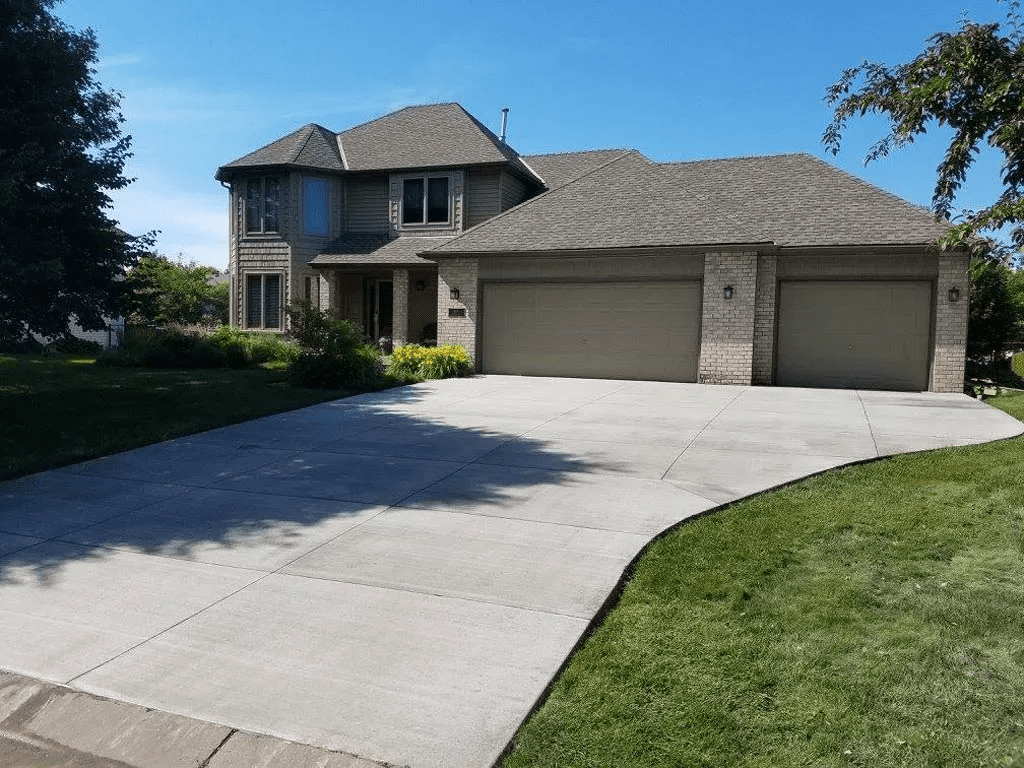
Tips to save money on a knockdown rebuild project
- Good planning will save money and time. If you’re organised with all your permits and tasks (such as disconnecting services and hiring demolition companies), you’ll avoid delays.
- Make sure everything is correct before you sign a contract. Making changes after you’ve signed will cost extra.
- A pre-designed floor plan will be cheaper than a customised plan.
- Start planning your budget early. This provides you more time to adapt your plans and find extra income if needed.
- Think of ways to compromise: If you’re running over budget, consider compromising on fittings and materials to reduce costs. You may be able to swap these things out later when your finances allow it.
How we can help you find a home builder in Brisbane
At Buildi, we help you find the right builder, save time, reduce stress and stay on budget.
How We Can Help You
Building a home is one of the biggest decisions you’ll ever make. At Buildi, we’ll be there throughout the entire building process, guiding you step by step so you can avoid any pitfalls. We will help you by following these steps.
- Free Consultation – We will sit with you to understand what you are looking to accomplish.
- Due Diligence – We work with you to ensure you’re buying the right block of land at the right price without hidden problems.
- Builders tender – We will take your requirements out to the market of builders and they will bid to win your business.
- Present solutions – We will compile the top 3 options and present you with a comprehensive proposal on builders’ strengths & weaknesses along with prices and specifications.
- Contract Signing – We will work with you and your selected builder to ensure there is full transparency in what you are entering into.
- Building your home – We work closely with the builder to ensure all service levels are met and your project is on schedule.


0 Comments